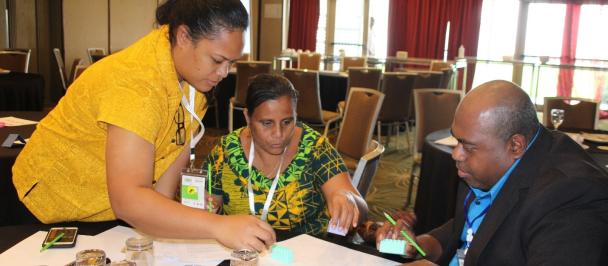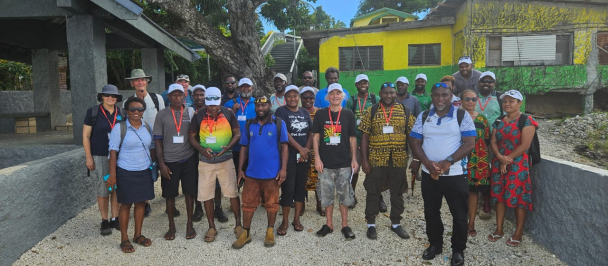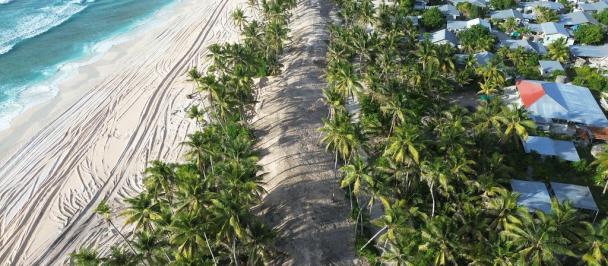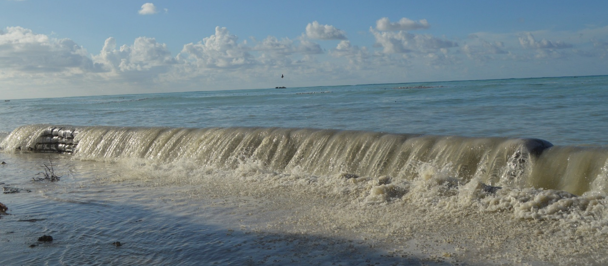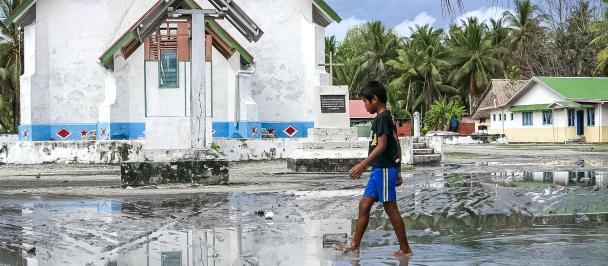Authors: Vijay Prasad Kesari, Portfolio Management Specialist, UNDP & Douglas Marett, CEO, GH Sustainability and Service Provider, Climate Promise
UNDP Climate Promise supports Kiribati’s nationally determined contribution submission at COP27
November 18, 2022
The Republic of Kiribati has submitted its revised Nationally Determined Contribution (NDC) on 9 November at the COP27 meeting of the UN Framework Convention on Climate Change (UNFCCC). The revised NDC outlines Kiribati’s efforts to address the global temperature goals of the Paris Agreement, and to increase the transparency of planned national actions to reduce Greenhouse Gas (GHG) emissions and to help the country adapt to the changing climate.
As an atoll nation in the Pacific, with an average elevation below 2m, Kiribati faces considerable risk from climate variability and sea-level rise. This includes a potential risk of permanent inundation, as well as environmental degradation, even though the country’s overall GHG emissions represent only 0.0002% of global GHG emissions that cause climate change.
Working with the Office of Te Beretitenti (President), the UNDP Climate Promise supported the preparation of the revised NDC along with the evaluation of GHG baselines and reduction potentials for the newly included sectors of waste, fluorinated gases, and AFOLU (agriculture, forestry, and other land use). This sectoral evaluation work included addressing information availability and quality, setting realistic mitigation scenarios for the future, and identifying future support needs for capacity building and technical assistance. Additional UNDP Climate Promise support in Kiribati focused on climate change and NDC related information dissemination and stakeholder engagement.
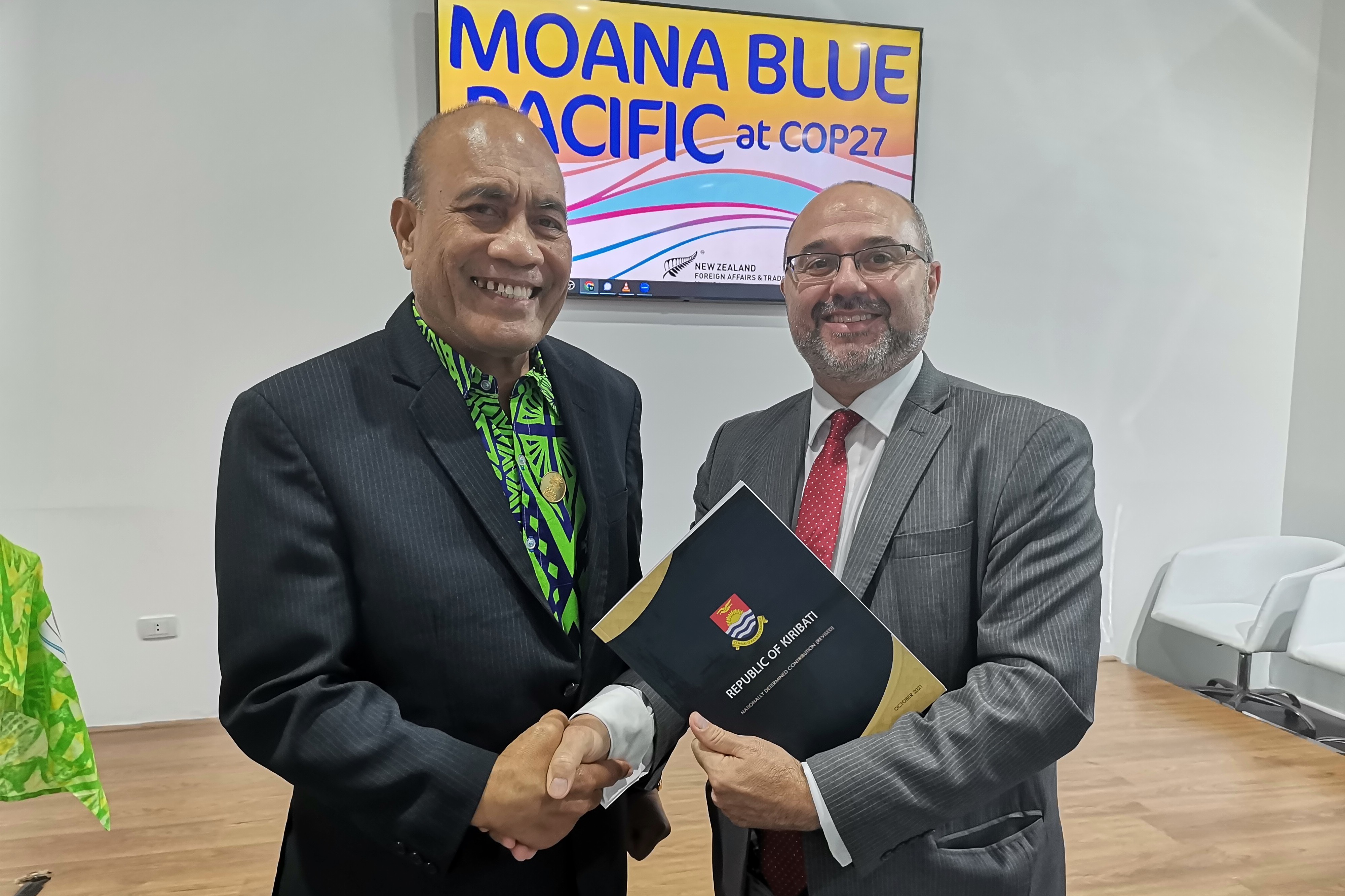
(Left) President of Kiribati, H.E. Taneti Maamau submitted the country's revised Nationally Determined Contribution at COP27.
For each of the sectors addressed by UNDP Climate Promise, care was taken to identify reliable sources of activity information in the sectors that was not only accurate but also directly comparable both in the past and for the future. This information was used to identify the past GHG emissions in each sector, and to project a Business-as-Usual scenario for GHG emissions up to and including 2030. Following this, mitigation scenarios were prepared for each sector based on the potential use of the best available technology that is realistically applicable to the national context of Kiribati. Finally, capacity building and technical assistance needs were determined based on the potential application of the aforementioned technologies and the need to enhance information availability to ensure more accurate reporting on progress in GHG mitigation in the sectors.
The Revised NDC puts into perspective sectors and mitigation efforts and planned actions complementary to the 1.5 -degree goal. The Revised NDC is aligned well with national policies and strategies in place and looks towards low emission development pathways consistent with the Kiribati Vision for 20 years (KV20) and Kiribati Development Plan (KDP).
Kiribati will now use the revised NDC as a key national strategy and planning document for the implementation unconditional mitigation and adaption actions within Kiribati, and to secure international support to substantially increase further (conditional) mitigation and adaption actions and enhanced transparency.
The UNDP Climate Promise is supported by the following donors European Union, Germany, Italy, Spain, Sweden and UNDP core contributors. We note that other important background work for enhancing the NDC includes activities supported by other Pacific regional partners such as the Regional Pacific NDC Hub, the Global Green Growth Institute, and International Institute of Sustainable Development. The other Pacific regional partners are funded by Australia, Canada, Germany, New Zealand, and the United States of America.

 Locations
Locations